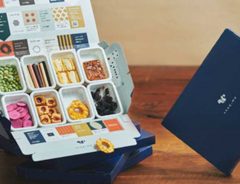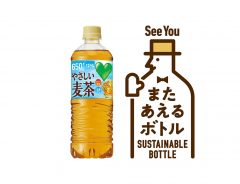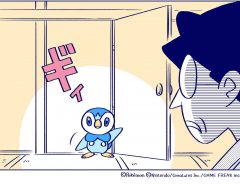
Source: © SocialWire Co., Ltd.
Japanese convenience store chain MINISTOP to offer its sustainable iced coffee in large size
- Tags:
- Iced Coffee / MINISTOP / SDGs / sustainable
Related Article
-

Reward yourself with eight tasty snacks once a month with snaq.me subscription service
-

SUNTORY’s barley tea now in “sustainable bottles” made with 100% recycled materials
-

Birds of a feather: Piplup works as assistant for veteran novelist in manga for Project Pochama
-

Traditional Japanese storehouse doors & lattice panels get new lease on life at Matsujirō Shōten
-

“My hashi pouches” are the perfect way to carry your own personal chopsticks
-

Avoid crowds, wear a traditional hakama and enjoy Yokohama with hotel’s special Spring plan


Starting on Friday, May 28th, 2021, Ministop Ltd. will launch its popular freshly-ground coffee (also available hot) in a large size, approximately double the volume of the small size, at all MINISTOP convenience stores in Japan (1,964 locations as of April 2021).
By releasing a large size iced coffee for the height of summer, MINISTOP will be able to meet the needs of customers who want to sip on a flavorful iced beverage they can take with them as they enjoy outdoor activities, rather than satisfying their thirst with a small drink they can buy and finish at the store.
The iced coffee has the sweet and savory aroma of deep-roasted beans with a refreshing aftertaste that makes it easy to drink.
The large iced coffee will cost 176 JPY and join the existing lineup of small- and medium-size coffees costing 93 JPY and 136 JPY, respectively.
Sustainable Coffee at MINISTOP
As part of its efforts to procure sustainable coffee, from October 2020, MINISTOP has switched to coffee beans procured through the AEON Sustainable Coffee Project for their freshly-ground coffee products.
In addition to expanding its procurement of raw materials through third-party certifications (International Fair Trade Certification, Rainforest Alliance Certification, etc.), AEON launched the Sustainable Coffee Project, which aims to solve social issues faced by producers and workers.
The project's objectives are:
Moreover, the AEON Group is also promoting initiatives such as teaching coffee cultivation techniques required for 4C (Common Code for the Coffee Community) certification and providing guidance on efficient and sustainable farming.
For more information on the AEON Sustainable Coffee Sourcing Initiative, see here (in Japanese).